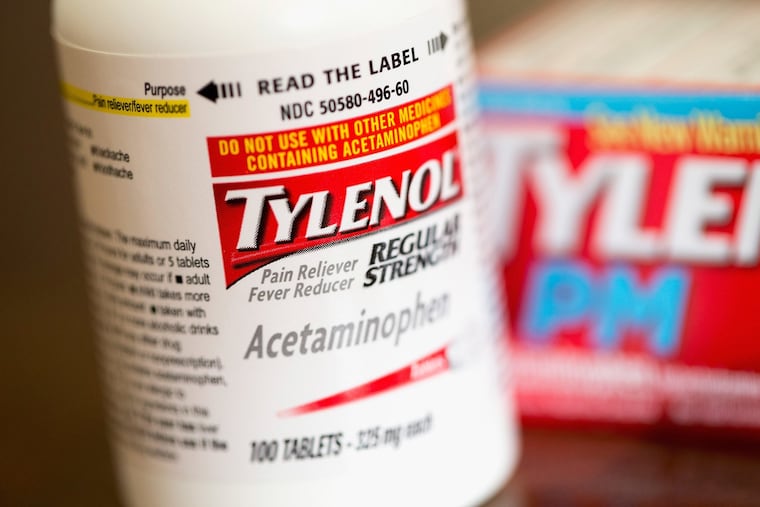Suicide-related over-the-counter painkiller incidents are increasing, study suggests
The study analyzed 549,807 suicide-related calls made to Poison Control Centers from 2000 to 2018 that mentioned over-the-counter painkillers.

Suicide-related incidents involving over-the-counter painkillers, such as acetaminophen (Tylenol), ibuprofen, and acetylsalicylic acid (aspirin), increased by 33.5% between 2000 and 2018, a study from Nationwide Children’s Hospital in Columbus, Ohio, suggests.
The study, published this week in the journal Pharmacoepidemiology and Drug Safety, analyzed 549,807 suicide-related calls to poison control centers that mentioned over-the-counter painkillers. Those between ages 6 and 19 accounted for nearly half of all incidents, and females accounted for about 73% of calls.
“The results of the study were not surprising at all to us,” said Lauren Longo, a health education specialist at the Poison Control Center at Children’s Hospital of Philadelphia. “We’ve experienced a similar trend here in Philly.”
Longo said that the Poison Control Center has had an annual increase in suicide-related incidents involving over-the-counter painkillers since 2011, especially among young females. Most incidents occurred when the individual took only one type of pill, she said.
Teens use over-the-counter painkillers in suicide attempts because they are so widely available in homes, researchers have said. A 2019 study published in Clinical Toxicology that analyzed 1.68 million suspected cases of suicide by self-poisoning among people ages 10 to 25 found that over-the-counter painkillers and antidepressants made up more than one-third of poison-related suicide attempts.
The results “encourage us to remind caregivers that medicines can be easily accessed in their homes,” Longo said. “We always ask families to consider not buying bottles that are huge amounts of pain relievers and locking up medicine, especially if there are any teens in the house who have a history of depression, because they take it very impulsively.”
Longo said the CHOP Poison Control Center sometimes receives calls from teens themselves immediately after a suicide attempt.
“Our poison center ends up brokering the confession between the teen and the parent,” she said.
In addition to the increase in the number of incidents involving over-the-counter painkillers, the study found that the severity of the incidents increased as well. This could be because young adults are increasingly using more than one substance, said Gary Smith, director of the Center for Injury Research and Policy at Nationwide Children’s Hospital and an author of the paper.
“Multi-substance ingestions are more severe because of drug-on-drug interactions,” he said.
Smith said that solutions could involve limiting access to certain quantities of medications or redesigning the containers that hold the drugs. He pointed to countries in the European Union that require prescriptions to get Tylenol as an example.
“In the EU, they are very concerned about toxicity that’s taken in overdose,” Smith said. “I think we do need to explore those strategies. This study is an alarm. We have to pay attention to this because the numbers and severity are going up. We don’t want to wait until it gets really bad.”
Longo said that one way for parents to prevent these incidents is to dispose of expired or unneeded medications. She said the Poison Control Center recommends prescribing the lowest number of pills possible to teens, especially as depression rates increase in this age group.
“It’s also very important for parents to talk to their children without judgment to try and maintain awareness of what’s going on in their lives,” Longo said. “Maintaining open communication can be really helpful.”
Smith said that people often underestimate the danger of over-the-counter painkillers. Taken in large doses, acetaminophen can cause liver failure. Overdosing on ibuprofen can damage the stomach and intestines, while taking too much aspirin can lead to seizures and high fevers.
“I can’t tell you the number of times I’ve talked with parents and they don’t realize how potentially toxic something like Tylenol is,” Smith said. “They just have it in containers of 500 to 1,000 pills and assume this stuff is relatively safe.”
People in crisis can call the National Suicide Prevention Lifeline at 800-273-TALK (-8255) or use the Crisis Text Line by texting TALK to 741741.